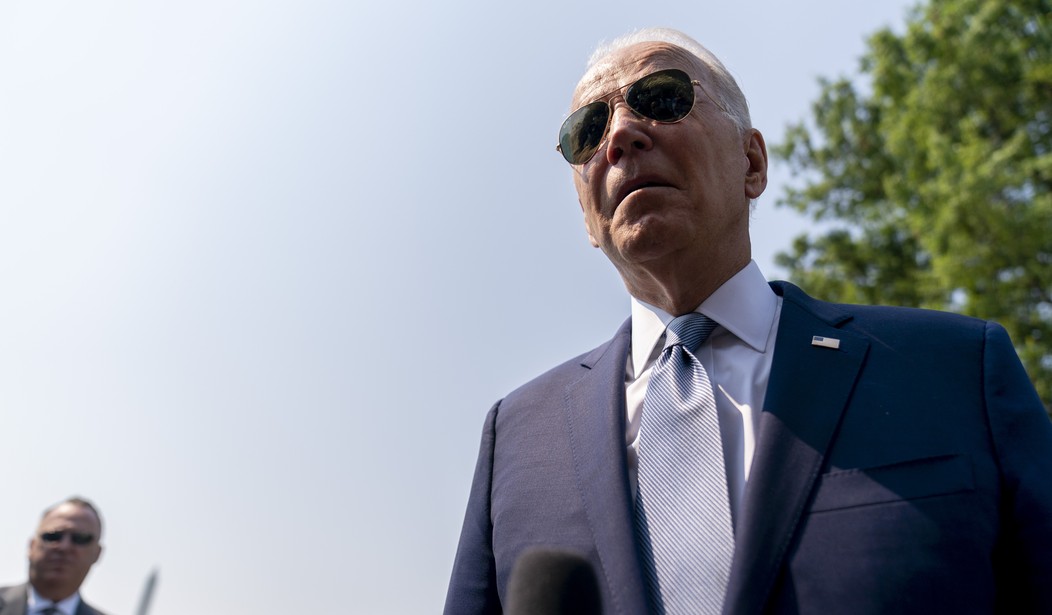Not since their infamous summit in Alaska in March have President Biden and his senior team arguably had a worse week on China policy. After Biden’s White House news conference Thursday, real questions remain whether he will in fact determine China’s responsibility for the global pandemic and hold the Chinese Communist Party accountable in a meaningful way if, as is widely suspected, the virus spread intentionally or unintentionally, from a government lab in Wuhan, China. In addition, Biden’s secretary of defense Lloyd Austin only deepened those questions, and raised another central one dealing with our allies, in his own appearance in Asia earlier in the week.
In late May, Biden was effectively pushed into conducting his own 90-day review of the origins of the virus, after initially deferring that key question to the World Health Organization to resolve. Biden’s three-month review, conducted by all elements of the intelligence community and overseen by his national security adviser, was due for a mid-point report two weeks ago. That deadline came and went with absolutely zero news on how the review is progressing, whether China is cooperating, or any preliminary conclusions on the Chinese Communist Party’s culpability one way or the other in developing and spreading the deadly virus around the world.
Biden had a perfect opportunity to give that important progress report last week, when he gave widely anticipated remarks from the White House for close to 40 minutes on the federal government’s response to the Delta variant of the virus, and to call for greater vaccinations and a return to mask mandates in large parts of the country. To his credit, Biden rightly pointed out that the virus has killed more than 609,000 Americans to date, noting, “that’s more deaths than World War One, World War Two, Vietnam, 9/11, Iraq, and Afghanistan wars combined.” Yet, in highlighting that devastating toll, Biden mentioned not a word about the progress of his review on its origins -- nothing on the need to get to the bottom of whether China in fact unleashed the virus on our country, and if so, how he intends to hold them accountable.
Recommended
Biden’s failure to update the nation on these two central questions of Chinese Communist Party culpability mirrored his own defense secretary’s refusal to address them in a much publicized trip to Asia last week. Defense Secretary Lloyd Austin gave a key speech in Singapore in which he discussed the virus at length, noting U.S. efforts to donate the vaccine in the Indo-Pacific region, including the deployment of some 40 million doses to date. Yet, following the lead of his commander-in-chief, Austin made no mention whatsoever to the region’s leaders of where the administration stands more than halfway into the review of China’s involvement in developing and spreading the virus, and options for holding it accountable at the end of that review.
Austin’s silence on the issue in that important speech was great news to China’s leaders, who have worked tirelessly to shift any focus on their responsibility for the virus both globally and regionally, and to stymie any international efforts to look into it seriously. Unfortunately, Austin was not through with delivering good news to Chinese Communist Party leadership in Singapore in the same speech.
To his credit, Austin echoed President Trump’s strong stances on key China issues, including the importance of the “Quad” to regional stability, freedom of navigation in the South China Sea, and continuing to counter China on its destabilizing actions on India and Taiwan, and for its genocide and crimes against humanity against Uyghur Muslims in Xinjiang. Rather than stop on that note of bipartisan continuity, though, Austin committed an additional and significant unforced error that underscored a key difference between Biden and Trump when it comes to China.
While praising Britain’s unveiling of its new aircraft carrier HMS Queen Elizabeth, Austin appeared publicly to discourage the United Kingdom from continued significant naval deployment to the region. In remarks that the Financial Times underscored would “come as a blow to the British government,” Austin asked, “If for example, we focus a bit more here [in Asia], are there areas that the UK can be more helpful in other parts of the world?” The Financial Times noted that, “Austin is the first US official to openly address doubts on
whether Asia-Pacific deployments are the most efficient use of British
military assets.” By contrast, from early on in his administration, Trump encouraged multiple allies to patrol the South China Sea and other regional shipping routes, demonstrating a united front to counter Chinese aggression.
This past week clearly delivered some important wins for China, with Biden and his defense secretary refusing to signal progress or possible consequences for China’s likely involvement in spreading the virus, and in appearing to discourage, rather than encourage, greater allied naval patrols in the region, and the solidarity that such patrols promote. As the clock ticks down to Biden’s 90-day deadline for his report at the end of August, we can only hope for a much stronger outlook and performance between now and then.
John Ullyot was Deputy Assistant to the President for National Security Affairs and NSC Spokesman from 2019-2021.

























Join the conversation as a VIP Member